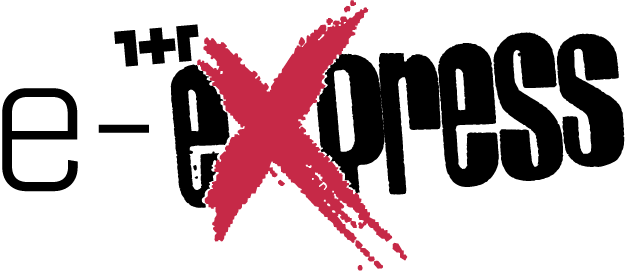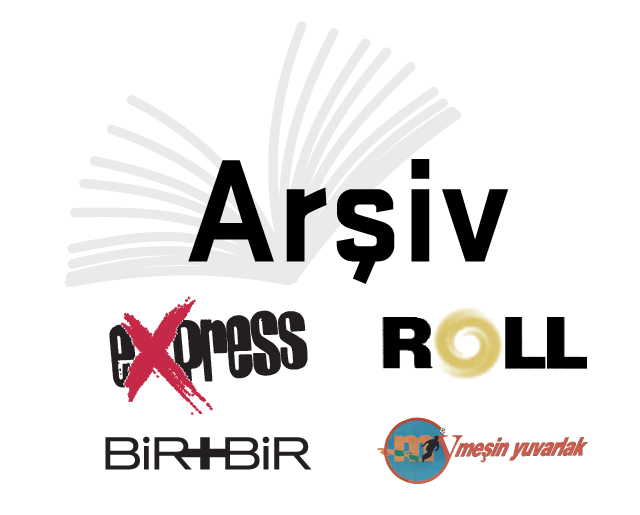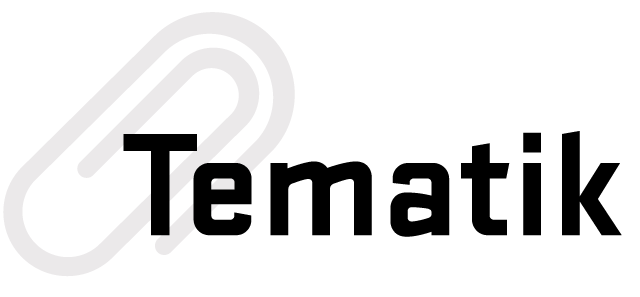After the first General Assembly of the Independent Miners’ Union, recently established by coalminers in the Soma province of Turkey, we are taking a closer look at this grassroot organization, the lives of the province’s miners and their struggle to overcome the contempt and exploitation with what Bertolt Brecht once called “two kinds of cleverness.”

Two kinds of cleverness: To earn your dinner, you need to be clever; that can mean obeying your superiors. Another kind of cleverness may cause you to do away with the system of superiors and inferiors. However, to carry out this undertaking you still need the first kind of cleverness, since you also have to eat your dinner.
Bertolt Brecht [1]
On December 16, 2018 the Independent Miners’ Union held its first general assembly in a small room inside a newly renovated and poorly heated commercial building. The union has only around fifty members yet, but it already contains a great diversity in political viewpoints. One can’t help but think that this general assembly of December 16, 2018 may one day be remembered as a historic event.
In France, the Yellow Vests and the contempt directed at them by particular groups of leftist intellectuals have been hot topics for quite some time. Young novelist Edouard Louis was born and raised in the town of Hallencourt in the north of France, amidst poverty, homophobia and racism. His first novel, The End of Eddy, was an autobiographical account of a young boy growing up poor and gay in Northern France. Around the time some intellectuals became vocal about their contempt for the Yellow Vests as the white working class of France, Louis said that he recognizes the now-mediatized bodies of Yellow Vests: that he sees his father, his aunt, the people of his hometown in the bodies exhausted because of over-work, malnutrition, exhaustion, social and geographic exclusion, and humiliation. “Whoever insults a Yellow Vest insults my father,” [2] he said. The kind of contempt he is talking about is familiar to large audiences in Turkey as well.
My first visit to Soma and Kinik was four days after the mining disaster of May 13, 2014 –as part of a large group of students and graduates of Istanbul Boğaziçi University who came together to express condolences to families of 301 mineworkers who died. I then regularly visited both Soma and Kinik until I moved to Soma last September, to stay for a year for my dissertation research. One question I heard that very first day stuck with me. It was directed at a middle-aged miner who was telling us about the fire that caused the disaster, the workplace accidents and limb losses he witnessed and his excruciating hernia: “Why are you still voting for the ruling party, Justice and Development Party (AKP) then?” This question was full of contempt, baseless assumptions about that particular miner, and semi-baseless assumptions about AKP’s base in the province. It was my anger with this kind of contempt that initially drove me to the Soma province [3] for my research.
Unionism with cleverness and sweet talk
The kindness, sincerity and hopefulness of Tahir Çetin, the now-elected leader of the union, is overwhelming for someone who is surrounded with cynicism in academia and elsewhere. Çetin lives and organizes with a kind of awareness about his and his fellow miners’ historical circumstances. He is from a family that is currently partly peasant-farmer and partly miner [4]. The local Marxist organizers here in Soma call these families ‘moujik.’ [5]
In the sixth month after the disaster, 2831 mineworkers were laid off with a text message. They were paid only the first of twenty-four installments of their severance payments. Forcing Soma Mining Inc. to pay the rest of these payments is at the top of the union’s to-do list.
While he and several other male members of his extended family are employed as mineworkers, the elder family members continue to engage in agriculture and animal husbandry, in one way or another. Scholars and local union organizers have been telling the story of how coal mining dominated the province, socio-culturally and economically. [6] However, no matter how radically young and middle-aged men have been proletarianized since early 2000s, it is still a privilege for a miner to be a native of the province and to come from a “moujik” family.
Tahir Çetin is aware of how this fact allows him to use both kinds of cleverness about which Brecht speculated. He thinks that he is well-respected by his superiors including mine–sergeants [7], technicians, engineers and big bosses–and he hasn’t been laid off yet despite his vocal efforts in organizing his fellow mineworkers because they know about his family background and the kind of support he would get from his fellow mineworkers had he been laid off. The other mineworkers with whom I chatted at the general assembly agree with this. It seems like Tahir Çetin or any other mineworker who is now a member of the Independent Miners’ Union will be backed by workers from different social and political background if they get fired because of their union membership. A mineworker who is a co-worker of Tahir Çetin told me: “You know, I wasn’t going to come today. Seriously. But oh, the sweet talk of this guy here!”
Within the past thirty-forty years, and especially during the 1990s, many families have migrated to Soma from cities like Kütahya, Çorum, Ordu, Zonguldak, Sivas and Diyarbakır. Some of these are places where local agricultural products such as hazelnut lost their market values due to a series of neoliberal policies imposed by IMF, World Bank, World Trade Organization and EU’s Common Agricultural Policy –implemented progressively since the military coup of 1980.
These policies required the liquidation of Turkey’s state agricultural institutions, which had provided a degree of financial security and protection for peasant-farmers. Some others are places where mining families were guided to move to Soma by the state because the state-run coal, copper or zinc mines in those cities were exhausted and shut down. A few others are cities torn by the war between Kurdish guerillas and the Turkish state. They don’t have feudal-kinship networks in the region, or mothers, wives and daughters who work on their fields or on others’ fields for a 65 lira-a-day wage for six to eight months a year. Most of them pay rent unlike most of the miners who are natives of the province, who have inherited a house, or some savings from their parents to match a reasonable amount of mortgage loan.
Prior to the disaster, lower-level mineworkers were disciplined through hunger, sleep deprivation, black lungs, limb losses and hernia. Since the disaster, the salaries have doubled, and the working has been reduced to five days. Now, mineworkers are disciplined through debt and an intense fear of losing their jobs –black lungs, limb losses, hernia and other occupational diseases withstanding.
Tahir Çetin recognizes his relative privileges when compared to such families. He understands why his migrant co-workers live and work with an intense fear of losing their jobs, and why some of them see the ruling party, the AKP as the only provider of stable jobs, seeing on a daily basis, the tight relations between mining companies, the AKP government and the pro-government “yellow union” Türk Maden-İş. He convinces his friends with his sweet talk, and with awareness about the conditions in which only he and mineworkers like him can use both kinds of cleverness.
After being elected as the President of the Independent Miners’ Union, Tahir Çetin put an emphasis on the new union’s inclusivity in his inaugural speech: “After the 301, [8] we witnessed divisions between religions, sects and races. We don’t accept those divisions. We are here together from different sects [9] and different political views.”
In the sixth month after the disaster, 2831 mineworkers were laid off with a text message. They were paid only the first of twenty-four installments of their severance payments. Forcing Soma Mining Inc. to pay the rest of these payments is at the top of the union’s to-do list. The authors of the book Çizmelerimi Çıkarayım mı? Soma… 13 Mayıs 2014 [Should I take off my boots? Soma… May 13, 2014] say that the majority of the former mineworkers who are from the town of Kinik are currently not employed by any of the coalmines in the province. [10]
According to mineworkers from Kinik, there is an unspoken reason behind this consensus among mining companies: the mineworkers who were the most outspoken and visible in the aftermath of the disaster –regarding their then-appalling working conditions– were from Kinik. Kinik has a large Alevi population, and it wasn’t a coincidence that the TV channels which were not allowed to enter Soma for interviews and live broadcasts went to Kinik. Since those turbulent times, men from Kinik are rarely employed in the coalmines. Yet, it is widely argued by local mineworkers from all three towns which constitute the Soma province that locals in general are rarely preferred by mining companies for lower-level jobs.
This is because coalmine bosses and administrators are also fully aware of the differences between the socio-economic conditions in which local workers and migrant workers live. Mineworkers from Çorum, Ordu, Sivas or Zonguldak depend solely on their wages. Their wives and daughters either lack access to local agricultural networks or can’t work as agricultural labourers. They pay rent unlike local mineworkers who continue to live in their villages with the ongoing support of their parents. They are still members of the yellow union not to lose their jobs –not because of the supposedly free three metric tons of coal given to each miner every year. The market price of three metric tons of coal is below the annual union dues cut from wages, and everyone is aware of it.

Contempt is one of the most harmful and contagious diseases of our age. It gets under the skin of the poor –along with toxicity, bodily exhaustion and malnutrition. It has consequences.
These migrant mineworkers don’t use their second kind of cleverness not because they are ignorant and incapable of using it, but because they can’t risk their jobs in any way. However, mineworkers who are already a part of the Independent Miners’ Union seem hopeful that, as long as there are workers who dare to use two kinds of cleverness and sweet talk to organize, those who live in fear might join them. After a minute of silence at the general assembly, a young mineworker broke it by saying: “My friends are silent here but they can’t stop talking when they are in the mines. They just don’t like sunlight, that’s all. They need to feel the dark to feel active.” And, “Yes, when we are inside the mine, telling our friends about the union, we won’t be afraid of anyone but Allah” added another.
Why do coalminers vote for the ruling party?
Contempt is one of the most harmful and contagious diseases of our age. It gets under the skin of the poor –along with toxicity, bodily exhaustion and malnutrition. It has consequences. That’s why the 2019 mayoral election campaign song of the ruling party goes: “The servants of the nation will keep ruling while those who look down on the people are gawking. With diligence, sincerity and humility, Justice and Development Party…” [11] It was played in between speeches of local candidates at the AKP’s/Erdoğan’s most recent rally in Manisa on February 17, 2019.
The social democrats, leftist intellectuals and Kemalists who are contemptuous of coalminers in Turkey and elsewhere don’t understand why and how miners don’t use both kinds of cleverness–whether they vote for AKP or not. Ignorance is the easiest and laziest response to this question, adopted by educated people, social analysts and politicians alike. As they internalize this response, they free themselves from responsibility for the current and future state of their country. The coalmine bosses and the government, however, are much more grounded in day to day realities of the province, and they strategize accordingly.
According to my mineworker interlocutors, since the 1980s, mining companies have been sending off lower-level workers to their hometown cities, towns and villages to recruit workers. These workers have good relationships with their bosses, and most of them are from the Black Sea or Central Anatolia regions. The newly recruited mineworkers make up the most obedient group of workers since they lack the kinship networks which locals benefit from.
Migrant mineworkers don’t use their second kind of cleverness not because they are ignorant and incapable of using it, but because they can’t risk their jobs in any way. However, mineworkers of the Independent Miners’ Union seem hopeful that, as long as there are workers who dare to use two kinds of cleverness and sweet talk to organize, those who live in fear might join them.
Many people ask the same question all around the world: “Why do workers vote against their interests?” In the aftermath of the Soma mining disaster, this question was addressed in the following way: “Why do coalminers vote for AKP –despite the fact that the ties between the mining company and the government prepared the conditions of the disaster?” There is more to the responses I tried to uncover above. Prior to the disaster, lower-level mineworkers were disciplined through hunger, sleep deprivation, black lungs, limb losses and hernia. Since the disaster, the salaries of coalminers have doubled, and the working week, which used to be six days, has been reduced to five days.
Now, mineworkers are disciplined through debt and an intense fear of losing their jobs –black lungs, limb losses, hernia and other occupational diseases withstanding. Conservative, populist, racist, homophobic governments and their capitalist allies all around the world thrive on these bodies. Some think these governments maintain their voting base merely by instrumentalization of religion and other energy sources of populist discourse in the face of ignorant masses. They are simply mistaken.
As the organizing spearheads Başaran Aksu and Kamil Kartal said at the general assembly, lower-level mineworkers can be labeled as “ignorant” only as long as they are not organized. Though their numbers are small yet, some mineworkers show an incredible stubbornness in the face of exploitation and contempt. With two kinds of cleverness and some sweet talk, they struggle to convince their friends and co-workers to join the Independent Miners’ Union. The union is expanding each day.
Daring to desire what seems beyond reach
Coalminers have so much to learn from their wives and daughters. Women of all ages schooled me about the life in the region with their sharp insights and keen observations. Most of them are trapped by gossip, oppression, physical violence and unending housework –while most of the mineworkers are encaged by at least one of the followings: alcoholism, gambling, loan sharking and bank debt. In spite of and along with all of this, women continue to raise children, vegetables and animals. Oppressed and patronized by men on a daily basis, women continue to produce and enrich life by using not only two but many kinds of cleverness.
Perhaps, the most important difference between the Soma province and the majority of other places in the world where the disdained working poor reside–such as some parts of Appalachia or Northern France–is nutrition. Though agricultural production is significantly reduced due to post-1980s neoliberal policies, local mining families still eat well. If nothing else, they can cultivate their own vegetables and have access to the eggs of their own chickens. Migrant mining families lack this luxury. That’s why I believe some of the wives and daughters of miners have extraordinary insights about what the nature surrounding them has lost because of the mines.
A fifty-five-year-old fieldworker who has been working since the age of nine said: “I love the nature, the animals, the trees. Humans, not so much… Only if they’d let me, I wouldn’t come back from the mountains. People want the mines for bread. Why else would they? They’ve already lost their water, their beautiful trees in those villages closest to the mines…”
They also have extraordinary desires about the future. They are incredibly resilient and stubborn when it comes to enjoying whatever freedom they have. Though only a few can want more for themselves, most of them dare to want what seems beyond their own reach for their children. Unlike the desires of their husbands, women’s desires don’t seem to be contained and co-opted by the government, the yellow union, or mining companies.
Mineworkers need to learn how to be resilient, stubborn and caring sweet talkers from the women and girls in their lives. Let us hope that as you read this piece, other mineworkers are becoming members of the Independent Miners’ Union, and that they are learning from their wives, mothers and daughters about sustenance in spite of those who invest in exploitation and killing. [12]
The privilege of being able to desire a better world
In one of his stand-up shows, comedian Loyiso Gola who was born and raised in a township in South Africa says “If you’re poor, you could not give a f*ck about global warming. ‘Cause what is global warming? ‘Ooh, if we don’t save the earth, ooh, then we might die in 200 years.’ Poor people are like ‘Yeah, but if I don’t eat now, I will die next week. Next week, that will be my ass. Next week, I’ll be f*cked.’” [13]
According to British Petroleum’s latest Statistical Review of World Energy (June 2018), coal production has risen slightly this past year, after several years of decline. At least one new coalmine and a second coal-fired power plant are under construction in the Soma province. World Meteorological Organization’s November 2018 disclosure on the state of the global climate says that humanity has only 12 years to overturn the breaching of the 1.5C limit. [14] However, as is obvious by now, the majority of the world population is still denied inclusion to the category of “humanity”, and political liberalism is no cure for that. The impoverished majority do not have the privilege of desiring a better world for everyone. While some mineworkers show the stubbornness and courage to raise their voices against exploitation and contempt, desiring a better world for everyone and acting on that desire fall on the shoulders of those who have the privilege to do so.





